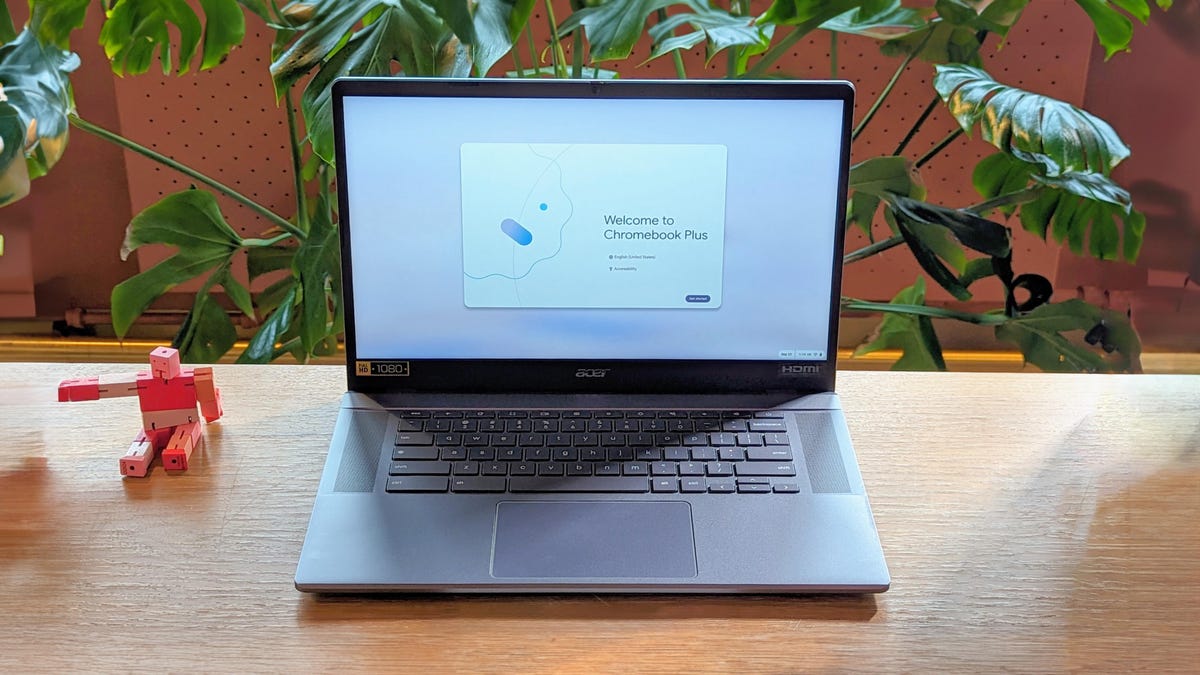The new Plus category of Chromebooks is an assurance that you’ll get a higher level of performance and features but still at a reasonable starting price.
With Chromebook Plus, you’re guaranteed to get at least the following specs, with a starting price of $399:
- 12th-gen Intel Core i3 or AMD Ryzen 3 7000 processor or better
- 8GB or more of memory
- 128GB or more of storage
- 1080p-resolution IPS LCD or better
- 1080p webcam with temporal noise reduction



All of them!
Linux and Linux distros are generally designed to be hardware-agnostic, and generally works just fine on very old components. I’m currently running the current version of Ubuntu on a used U1 server from ~2013, no issues, no headaches. It just works. Grab any Windows PC from the last 20 years, you won’t have any compatibility issues running most Linux distros, though some distros might expect more performance. Linux Mint is fairly lightweight.
And you can install those distros on a Chromebook, no? You can probably use CloudReady after ChromeOS no longer supports it after 10 years.
Debian LTS for stable releases is 5 years
https://wiki.debian.org/LTS
Ubuntu LTS is 5 years
https://ubuntu.com/about/release-cycle
Fedora is 13 months
https://docs.fedoraproject.org/en-US/releases/lifecycle/
LTS just means staying on the same release and guaranteed support for that time which is important for businesses. As a consumer you can always just do a release upgrade.
Since most businesses rely on Windows anyway, that’s pretty much irrelevant for this discussion. They cannot use Chromebooks either.
The original assertion was that a Chromebook becomes useless ewaste when the software updates stop. But as of today Chromeos gets software updates for longer than any Linux distro major release (10 years ChromeOS vs 5 years for Linux). You can install Linux on that Chromebook after Google stops supporting it just the same as the Windows laptop after Dell stops supporting it. And there’s CloudReady and Chromium. Theyre not ewaste without Google updates, you have options.
Linux receives updates forever. The point of LTS kernels is not to stay on them forever but to have to do less testing. It’s not very likely that upgrading kernels will break something but it can happen so businesses can stay on LTS kernels and continue to get critical security fixes and they’ll only have to update and test once a new LTS kernel comes out. The average person should use the regular kernel and that’s also the default on pretty much all distros
Comparing ChromeOS updates to LTS kernel updates makes no sense, especially since the LTS kernel can just be updated to a newer version if that specific version doesn’t get updated anymore.
But contrary to Linux or even Windows (unless they pull some hardware requirement shit again) you need to switch to another OS and not simply do a release upgrade.
You aren’t understanding.
That’s support for one specific software release.
It’d be like saying Apple supports iPhones for 1 year not 5+ years, because they’re only on iOS version X for one year.
Linux devices get updates literally forever.